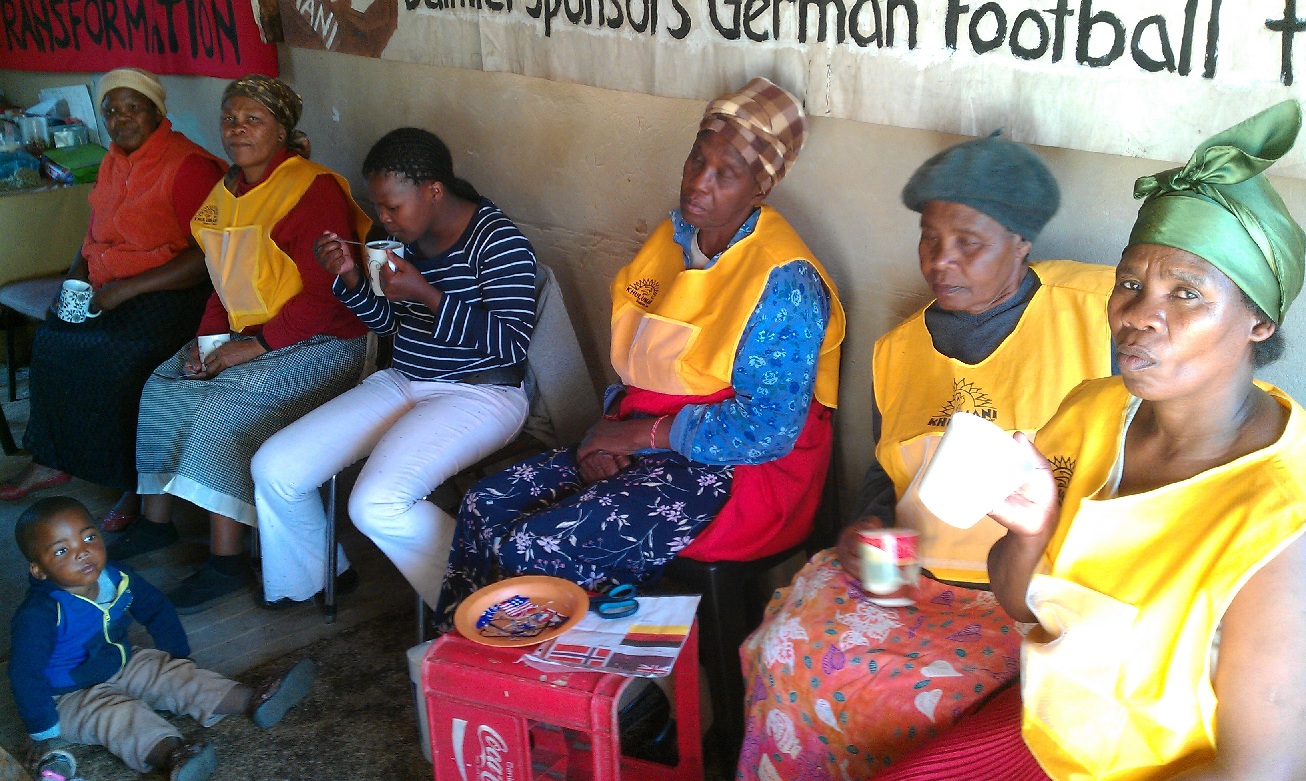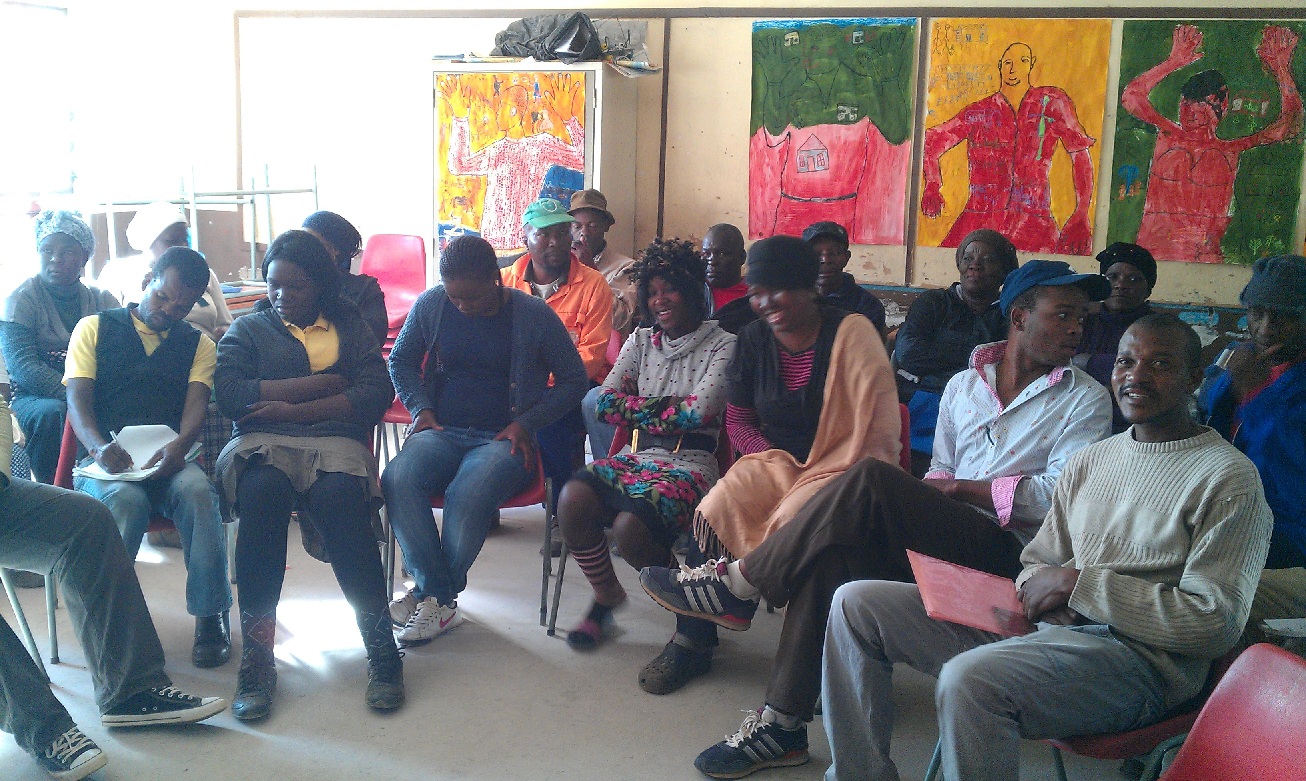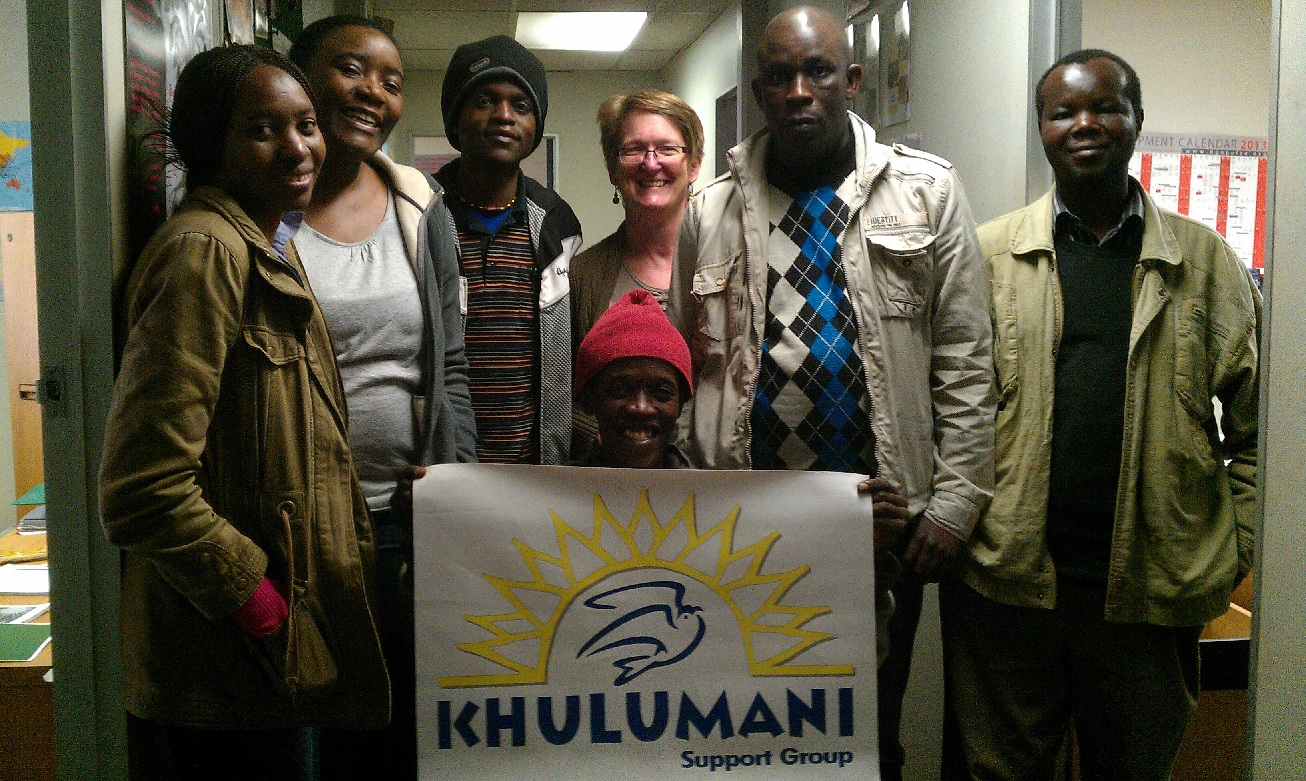Organizing an impoverished community
Khulumani is a grassroots organization. A month ago, I only had a theoretical understanding of what that meant—but not from lack of experience. I grew up in a family that was very involved in our religious community in Niger. I remember my mom’s weekends being taken up by church-like activities, volunteering to pick up and drive children from low-income families to Sunday school classes, organizing community events, and in general being of service to the less well-off community members.
When I finished high school in Maryland, I returned to Niger and spent a year as a volunteer to that same community that raised me, following in the footsteps of my mom and dad. Very few experiences in life compare to the rewarding feeling of spending every waking moment of your life in the service of a set of beliefs or principles, and leading a daily battle to match your actions to those convictions. In that year, I went from being a naïve and idealistic eighteen year old youth, who was mostly sure of what the world was about, to a young man full of uncertainties, questions, frustrations, hunger for meaning and purpose, and yet still with that same drive to help my fellow man.
Three or four years later, after changing my major multiple times in college, being interested in so many disciplines, and after working in education and a non-profit organization that helps refugees, I found a way to be of service and create sustainable change. The solution, I was convinced, was to create businesses that would employ people with fair wages, thus giving them a sustainable livelihood, while at the same time providing a valuable service to the community, and earning myself and my partners a deserved profit.
That was the drive behind Watel Solutions Corp, which college friends and I founded in 2006. After initial successes, however, we soon encountered the harsh reality that the business world is populated by some with less noble convictions than ourselves, and we were also not able to gather the high amount of capital needed for a manufacturing company. I decided I needed more experience to be able to deal with the sharks, and to build a successful company with such a high startup cost. I spent slightly over three years as an industry analyst, and am now in my second year of law school.
Working under the pressures of the profit-driven corporate world, the solution unfortunately often is to become a shark yourself. Somewhere along the way, whether working in a large law firm, in consulting, or even in politics, we take pride in our ability to work better than and to outsmart the competition, and this pride now becomes the driving force behind what we do. We climb through the ranks of management, becoming more and more driven by success, to the point where failure is not an option. Once we do not allow ourselves to fail, we are easily compromised. We break the rules, just to win. If we don’t outright break them, we find clever ways to come so close that we can still win and not be accountable even if our less-than-ideal strategy is discovered.
This aspect of human nature explains most of the problems of the world today, including poverty. I believe in the fundamental goodness of people. When we encourage a culture that rewards greed and glorifies individual success, that disrespects and underpays those who spend their days in the service of others, and that values entertainment over the pursuit of education, however, we set up a system that brings out the worst in people. The cold rationality that creates business profit becomes more valuable than the problematic emotion of empathy that would otherwise prevent us from making others worse off just for our own personal gain.
Khulumani today is dealing with and combatting the results of this globalized culture, which has become pervasive even in remote areas of South Africa. The issues are of course complicated by other factors, but the poor are often those who have not been corrupted by this culture—whether by choice or by lack of opportunity. Far too often, those most likely to land a helping hand are those who don’t have much themselves. They refuse to hoard the meager resources they have, when others have even less. They have empathy, they give to strangers even when they might never see these strangers again, and they cannot be happy when others are hurting. To use a term from Bantu philosophy, they have “Ubuntu.” The rich can certainly get to heaven, but there is probably more than just a Marxist interpretation for why people say that heaven is more populated by the poor.

I took the picture above in Thokoza, a township just northeast of Johannesburg. Here, Khulumani board member Nomarussia Bonase (far-left), herself a victim of gross human rights abuses, volunteers the use of her garage to host weekly meetings for grandmothers (“gogos”) of the community. These grandmothers, who’ve lost husbands, children, brothers, and nephews to heart-wrenching violence during the uprisings against apartheid, have never received closure to their horrible loss. Their weekly meetings provide them with fellowship and a forum to grieve and support each other. They also use their time to sow beadworks for sale (e.g. see the orange plate on top of the Coca-Cola case for a flag of the US one of the gogos is working on). When I arrived to meet them, they all started singing and gave me one of the warmest welcomes I’ve ever received. They also cooked and shared a meal with me. “Pap” and cow intestines—one of the most affordable and filling meals there is. Not the most tasty, but excellent "bang for the buck," as I call it.
 This past week, Khulumani staff and I traveled to the village of Keerom, about 2 hours northeast of Pretoria, to hold three-day workshops with the goal to transform participants from victims to engaged and active citizens. One of the workshops, for adults who had family members that were killed, focused on using art to express one's life experiences, joyful as well as painful, in order to release internalized trauma and allow participants to present their artwork and the meaning behind it to each other. Another workshop focused on building capacity with the youth of the village, to give them communtiy organizing skills, so that they can contribute to the betterment of their community. They decided to start a farming project together.
This past week, Khulumani staff and I traveled to the village of Keerom, about 2 hours northeast of Pretoria, to hold three-day workshops with the goal to transform participants from victims to engaged and active citizens. One of the workshops, for adults who had family members that were killed, focused on using art to express one's life experiences, joyful as well as painful, in order to release internalized trauma and allow participants to present their artwork and the meaning behind it to each other. Another workshop focused on building capacity with the youth of the village, to give them communtiy organizing skills, so that they can contribute to the betterment of their community. They decided to start a farming project together.

Above, some of Khulumani's staff members at the Johannesburg office. On the far left is the phenomenally organized accountant and wonderfully warm Sally M. Next to her is Angela T., one of the most joyful people I know. The Australian lady is Pamela W., who welcomed me in the office and helped me feel at home. The man with the blue, white and black striped sweater is Frans M., who has an interesting background.